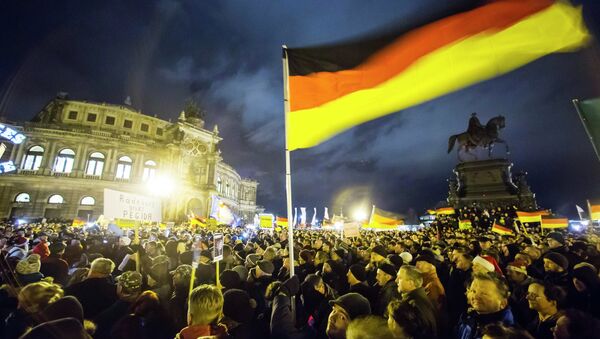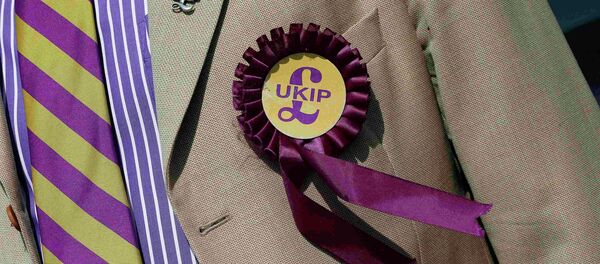France has seen a wave of extremist violence over the past week. Last Wednesday, 17 people were killed in a terrorist attack on the Charlie Hebdo magazine in Paris, in a hostage-taking incident in a Paris supermarket, and in a separate shooting when a policewoman was killed in the Montrouge region of Paris.
"With polling conducted prior to the attacks suggesting the National Front could be a serious contender during the next elections, there is a real fear that the party will be able to capitalize on the attacks by exploiting French concerns over immigration and Islamisation," Hugh Lovatt, a Middle East policy fellow with the European Council on Foreign Relations, told Sputnik on Monday.
Generally, the right-wing populist parties appeal to the "common people" as opposed to the elites. Their political ideology rejects existing political consensus and challenges the established political order. In Europe, however, right-wing parties are known for their opposition to immigration and the European Union federalisation.
According to the expert, the populist group of parties, spanning a wide political spectrum from the National Front in France, to PEGIDA in Germany, and UKIP in the United Kingdom, "has sought to capitalize on their countries' economic woes by pinning the blame on immigration and multiculturalism."
Kumar Ramakrishna, who is a head of the Centre of Excellence for National Security (CENS) at the Rajaratnam School of International Studies (RSIS) in Singapore agrees that the net effect of the extremist attacks in France may result in increased support for the extreme right in Europe, "when the anti-immigrant political parties who were deemed relatively extremist in the past may be increasingly seen as more mainstream."
The expert stressed that the shift may create a "cultural milieu" supportive of pockets of rightwing extremism of the type that gave rise to Anders Behring Breivik in Norway in 2011. "This would of course be destabilizing for inter-cultural relations across Europe where there are significant Muslim minority populations," Ramakrishna concluded.
In July 2011 Breivik bombed government buildings in Oslo, killing eight people and then killed 69 more people in a mass shooting. His main motive for the attacks was to market his far-right militant ideology. In his manifesto, distributed electronically by Breivik on the day of the attacks, he expressed a worldview encompassing Islamophobia, support for far-right Zionism and opposition to feminism.
The real danger for Europe after Charlie Hebdo attacks is that it may become less tolerant and less accepting, not only of refugees, who are themselves fleeing violence and extremism, but also towards those labelled by some to be "outsiders," whether they be Jewish, Muslim, or Roma, or even economic migrants from other EU countries, the EU expert Hugh Lovatt asserted.
The Muslim community, that has broadly condemned the attacks in France and displayed genuine shock at what has happened, in the current situation, more likely, will be forced to give up certain beliefs and cultural norms and assimilate more deeply into the European culture and values. However, "this pressure may have the undesired effect of forcing the European Muslims to have a siege mentality, rendering a small, but vulnerable segment of them increasingly vulnerable to extremist appeals, in a sort of vicious circle," Kumar Ramakrishna told Sputnik.
The Sunday unity marches commemorating the victims of the terrorist attacks that rocked France last week were attended by over 3 million people. The Paris march was led by some 40 heads of state and high-ranking politicians calling for an end to extremist violence.




